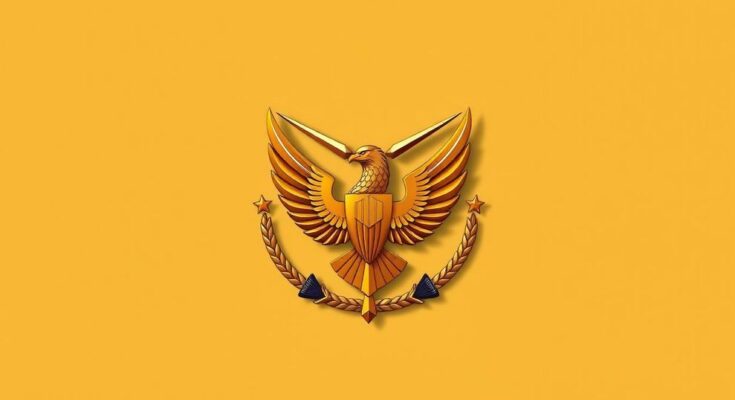Iraq’s parliament is advancing legislation to integrate the Popular Mobilization Forces (PMF) directly under state control, amidst U.S. calls for reduced Iranian influence. The original PMF framework lacks clarity but a new draft seeks to establish accountability and operational oversight. While internal disputes among Shiite factions complicate the process, the U.S. supports efforts to ensure Iraqi sovereignty over military forces.
On March 24, 2025, Iraq’s parliament convened for the initial hearing of the Popular Mobilization Forces (PMF) law, aimed at integrating the PMF into official state forces. This legislative move coincided with U.S. calls for Iraqi groups under the PMF to report to the Iraqi premier, the commander-in-chief, rather than Iran. The PMF was established in 2014 amid the rise of the Islamic State (ISIS), comprising approximately 70 predominantly Shiite groups and approximately 250,000 members, pursuant to a fatwa by Grand Ayatollah Ali al-Sistani.
In 2016, a limited law established a legal framework for the PMF; however, it inadequately detailed essential operational aspects. A more robust PMF Service and Retirement Law was approved by the Iraqi Council of Ministers in February 2025, which aimed to reform Iraq’s security institutions. Yet, political strife has stalled this legislation, particularly due to disputes among Shiite factions regarding mandatory retirement provisions for PMF members, which could eliminate veteran leadership.
U.S. officials have expressed concerns about the PMF’s connection to Iran-backed paramilitary groups, urging the Iraqi government to assert control over these forces. According to the U.S. State Department, for Iraq to bolster its sovereignty, it must ensure that the PMF is under the command of its premier and not influenced by Iran. Analysts have indicated that an effective separation of the PMF from Iranian influence and proper integration into official military structures is feasible, but it will require sustained efforts.
The proposed law contains 18 provisions that would place the PMF directly under the Iraqi premier’s command, restricting its members from engaging in political activities. The PMF’s scope will include national defense, safeguarding Iraq’s territorial integrity, and collaborating with government ministries. The proposed leadership structure elevates the PMF chairman to a ministerial rank and requires specific educational and service qualifications for both the chairman and chief of staff.
As the law now awaits subsequent readings and a potential vote, there is cautious optimism that political factions may reconcile their differences. Additionally, once passed, the new law would absorb all provisions from the previous PMF law enacted in 2016 while repealing it, thus providing a more coherent legal structure for the PMF moving forward.
The legislative advancements concerning the PMF law signify Iraq’s ongoing attempts to integrate militia forces within its official security framework while attempting to reduce Iranian influence. The U.S. government’s emphasis on the necessity of clear command over the PMF aligns with broader objectives of establishing Iraqi sovereignty and stability. As the PMF navigates internal political challenges, the proposed law serves as a pivotal step toward enhancing accountability, operational clarity, and institutional integration of its forces into the national military.
Original Source: www.rudaw.net




